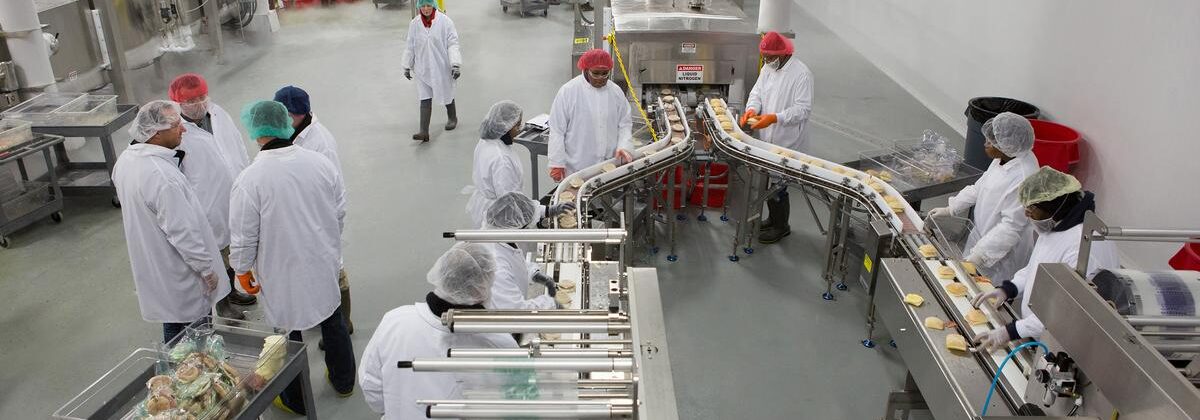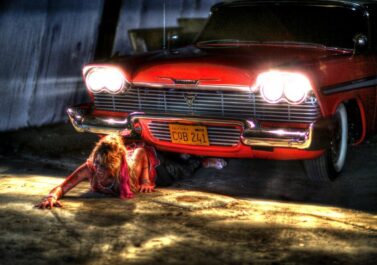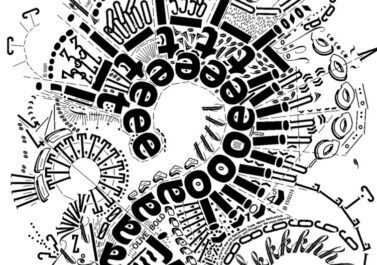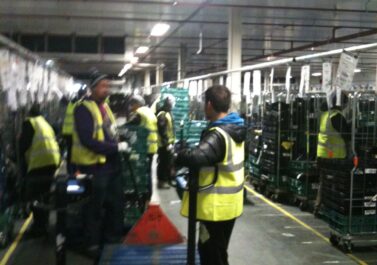Report: Working at Noon Southall and Bakkavor Harrow Pizza factory
I needed a job quick, so I went down to Ironbridge, Southall and signed on with the temp agency called GI Group based in the Noon Kerry Foods factory. With them you can start today, but don’t ask about tomorrow. And don’t expect more than the minimum. They don’t give you permanent shifts, you have to phone in at 9:30 am or 4:30pm to ask if there is work the following day. If you slave real hard or the manager likes you, you might get a rota. During my first months I often got no more than three shifts a week. Sometimes they sent you home earlier, two, four hours – without pay…
*** Chow Mein at Noon…
I worked at Line 1 for a while, the Chow Mein line. You have to clean the rims of plastic ready-meal packages real fast. Drives you nuts! Or you have to soften noodles that come out of the chiller. People are friendly, even if peoples’ English ain’t always that good. If you wouldn’t have your people, the job would turn you into a hardened noodle in no time. Then Line 4, chicken and rice, same thing really, just rice instead of noodles…
In total there are about 11 lines, with a dozen people working on them directly. Others work around them. Sometimes, up to three of the lines were not in operation. On Line 8 two lines run parallel. On each side of the line there are boxes with cooked rice. Women put stuff into the small plastic containers coming on the line, the men keep the line stocked up with rice. The only automatic machine is the sauce dispenser, above the line.
There aren’t many machines in that factory. We are cheap, so why invest in robots? So we do stupid work by hand. Some machines are around though, I worked at the rice shaker. Perhaps I wouldn’t introduce myself at a party like that: “Oh, so what do you do then?” – “Errr, I shake rice. Real cool vibrations, you know” – not a good chat-up line! It’s heavy work though, loading 100 kg of rice in there and then shaky, shaky. Two to three guys operate this machine, either bringing rice, loading it or taking out the trays. It’s physically heavier than the line, but less stressful. They then sent me to the duck slicer, without a health and safety induction. That thing cuts off your private parts in no time if you not careful!
One of the duck slicers has a sign that it is used for Sainsbury’s. Then there are the packaging machines, sealing the containers. All the other work is pretty much manual. There are technical problems with machines, e.g. the sauce squirter gets blocked or the sealing machine doesn’t seal properly, the duck slicer blade needs recalibration. We call for engineers. Permanent workers wait, temps are re-located to other jobs.
At Noon both permanents and temps have the same blue caps and white overalls. In what is called the ‘high-risk’ department and packaging, people have red caps, managers and supervisors have yellow caps. At Noon there are no dedicated hygiene/cleaning workers during the day shifts. People have to clean the machines themselves. The supervisor or line leader stops the line or machine at some point and orders people to clean. They have a separate tray wash, though.
The atmosphere is generally friendly, the women are nice and sympathetic when you are new. Most of the orders from supervisors are given in Gujarati, there are only a few workers from eastern Europe or Somalia working here. Some workers from Romania work in the high-risk kitchen. Average age of workers is around 40. One of the colleagues I worked with is from Gujarat, but has a Portuguese passport. He lived in Portugal before, then worked in the UK, repairing cell phones. There they didn’t pay him holidays, so he shifted to Noon.
Sometimes there are communication problems. I worked on Line 8 (rice and chicken and duck with different sauces). They asked me to get rice from the chiller, showing me a picture of the product, but they didn’t tell me to check the rice number. They use different types of rice for different ready-meals. I brought the wrong type of rice. Another time I brought rice with the wrong date, it was too old. Vibes towards me were a bit bad afterwards.
There is hardly ever any overtime at Noon, you work 7.5 hours, they pay 8 hours. Once a week I was sent home earlier because there was no work, two or four hours earlier, without pay.
The GMB union has a board and an office next to the canteen, but is are no major news on the board.
*** Flying Pizzas in Harrow
One day GI Group called workers to come at 5am, they put them into two taxis and drove us to Bakkavor pizza factory in Harrow. Some guys refused outright and many people refused to go there again, given that it is quite far out from where they live. It’s good to see that people are not willing to take just any old crap from the company…
GI Group promised me a weekly rota at Bakkavor in Harrow and a better job in the prep room, a chilled sub-department, paid at £10.40 instead of £7.20. I shifted to Harrow and worked in the prep room for ten days, but surprise, surprise, they paid only £7.20. The regular rota also didn’t materialise. In Harrow I was put ‘on reserve’ several times, meaning that you have to turn up without a guaranteed shift. You wait and see if they need anyone. If they don’t, you go back home and GI Group pays for two hours. This sucks big time…
It also sucks that they pay people differently, though they do basically the same work. Temps and permanent women workers on the lines were paid the minimum of £7.50 at the time, while permanent male workers who supply the pizza lines get £10. Some guys have been working there for over half a year without getting a permanent job. Also permanent workers in the prep-department get more, £10.44. In this way they create enough divisions so that workers are not strong and united enough to demand £12 for all!
Nearly all managers are of Indian background, plus one Hong-Kong Chinese. There are several departments in the factory:
1) The so-called ‘de-boxing’ or ‘receive’ department
Bulk goods come in on big pallets or in barrels (olive oil, cheese, tomato sauce). Two – three people have to break down these pallets and sort stuff to be taken into the production departments. Heavy job.
2) Prep
It is a chilled department. They make sauces here. Tomato sauce is pumped from big barrels (120 litres or so) into plastic buckets on wheels. Workers put in some spices. There are also two industrial cheese graters. The small one breaks down regularly. There are meat cutters and industrial can openers – in total around eight machines. There are a dozen workers in this department, the permanent workers are paid £10.44. Most prep workers are permanent.
3) Bakery
There are two bakeries, a smaller and a bigger one. The dough must be made somewhere else in the factory, as it arrives in the bakery already in cut-up portions. A woman at the beginning of the line puts the pizza base on to plates. Then people put on a kind of rim made out of dough sausages, on a moving line. This pizza base is then pressed down, sauce is put on by automatic dispenser and the pizza goes towards the oven. There are about 10 people per line, in total around 50 to 60 people. They have a special department where pizza bases are prepared to be sent to other Bakkavor factories in other towns. The bakery is hot and pretty dusty.
4) Assembly
There are mainly women working on the assembly line, they are paid £7.50. There are six lines with 10 to 15 workers each. The pizza bases arrive, but they are not hot anymore, sometimes frozen. From the bags you can see which supermarket they are going to end up in: Sainsbury, Waitrose, Pizza Express. A guy puts the pizzas on the line, this is usually a permanent worker’s job. The temps supply him with pizza bases, they have to get a trolley and unload it, get the pizzas out of the plastic bags. If you have to do this job alone, the line is too fast. They are paid £7.20 (former minimum wage). The women on the line put on various stuff, from cheese to vegetables to sausages. There are supply workers (male and mainly permanents) who bring stuff to the line, they are paid £10.00 (or £7.20 if it is a temp who jumps in). Apart from the sauce all ingredients are put on manually. The line runs a bit faster than the ones at Noon – pizza is quicker to assemble. The last line is used for allergen stuff, such as prawns – there the sauce has to be put on manually, as well.
5) Packaging
There are mainly men working here. There are six lines with six people each. There is a mechanical plastic sealer, the machine also puts the single pizzas into cardboard boxes. The rest is done manually: making bigger cardboard boxes to put the single ones in. Putting bigger boxes onto pallets.
It’s pretty heavy work, making thousands of pizzas for the big supermarkets. Again, apart from the sausage cutter in assembly or the odd sauce squirter and there are only few machines. They still have the old Katie’s overalls hanging around, from the old company that was taken-over by Bakkavor. Some old workers hang-around inside the overalls, too. Gloves and ear-plugs are often missing – if we would stick to the rules and wait till we get new gloves or plugs the lines would stop. Or masks are missing, not good when you put dusty starch in the cheese grater. Some supervisors are bullies, they shout their nuts off. The main manager doesn’t want people to read leaflets about better wages and takes away leaflets from workers…
There is a union board, but not much on it. Some photos of a ’Save the NHS’ march.
We should get in touch with the other Bakkavor factories and ready-meal factory workers in the area and build a forum to discuss and to take action. They squeeze us too much and they shouldn’t get away with it…
——-
[1]
“Bakkavör Pizza was formed in 2006 when Group’s Pizza business’s Katie’s Kitchen and The Pizzeria were combined under the Bakkavör Pizza name. Katie’s was formed in 1972 by three ladies who made quiche and pizzas. It is now one of the Group’s largest sites where over 100 different pizzas are made every day. Katie’s Kitchen was the first UK manufacturer to produce authentic Italian style pizzas. The Pizzeria site was bought in 2001 and opened in 2003 for the production of state-of-the-art pizza bases and pizzas.”
For further reading:
https://www.bakkavor.com/~/media/Files/B/Bakkavor-Corporate/PDF/bakkavor-corporate-brochure-2011.pdf
http://www.foodmanufacture.co.uk/Regulation/Bakkavor-tackles-accusations-it-is-overworking-staff
http://www.getwestlondon.co.uk/news/local-news/bakkavor-foods-fined-westminster-magistrates-6200142
https://www.bakkavor.com/~/media/Files/B/Bakkavor-V2/PDF/new-20150318-fact-file.pdf
http://ar14.bakkavor.com/assets/pdfs/BKV_Full-report-and-accounts-2014.pdf
http://www.anzerconsultancy.org/webimages/1cfa7d32-5e98-461c-9ddf-6fa958147c37_foodprocessing.pdf



